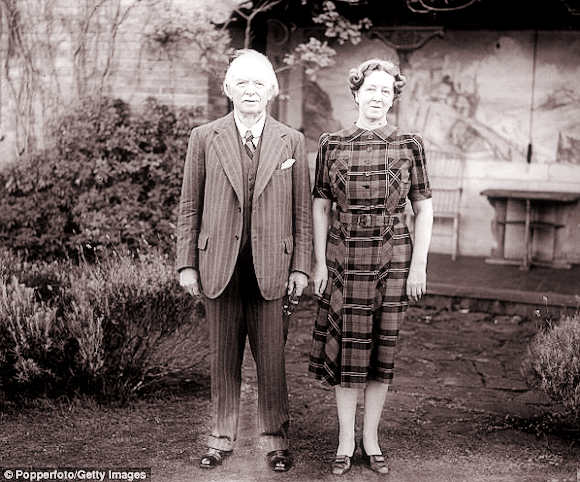 |
| Correspondents Winston Churchill and Admiral Jackie Fisher |
By James Patton
This abbreviation, now part of the popular vernacular, was used by Admiral of the Fleet John A. (Jackie) Fisher (1841–1920), 1st Baron Fisher, in a letter written to The Right Hon. Winston Churchill, MP. These two were close friends and frequent correspondents; Lord Fisher was the First Sea Lord from 1904 to 1910 and also from 1914 to 1915, while Churchill was the First Lord of the Admiralty from 1911 to 1915.
Fisher was an admiral and naval innovator, who began World War I as First Sea Lord but resigned in 1915. By 1917, his naval career was over. Here’s the letter:
In other correspondence, the two snickered about the King’s January1918 Honours List, upon which they found that Prime Minister David Lloyd George (1863–1945) had placed his private secretary, Miss Frances Stevenson (1888–1972) in line for a CBE. Lloyd George and his secretary had been intimate since 1913 (apparently a requirement for the job), and that relationship continued until after the death of his wife, whereupon he married Stevenson in 1943. Meanwhile, Stevenson had borne him a daughter in 1929. Lloyd George did not receive a peerage until 1945, less than three months before his death, but Frances was able to enjoy life as the Dowager Countess Lloyd George of Dwyfor for 27 years.
Perhaps they should have given Stevenson an OMG as well?
Originally presented in Kansas WWI, 2 May 2019



It wouldn't surprise me if OMG originated with Marconi operators, as an easily transmitted abbreviation, along the lines of ISOM (I say, old man.)
ReplyDeleteJim Cameron
Fisher and Churchill were living in unreality by this time. They had both resigned over the Gallipoli debacle and Fisher had had a brief breakdown. Fisher still believed that the fleet of Dreadnoughts which were largely his brainchild could "gobble up the German fleet". He was ignoring the fact that they had signally failed to do this at Jutland, during which British battlecruisers had shown a distressing tendency to blow up with little provocation. His anguish at the German Navy's attempt to land troops in the Baltic possibly stemmed from his own previous idea of an amphibious landing on the German Baltic coast, for which the completely useless Courageous class of Fast Monitor/ Large Light Cruisers had been built; fortunately the idea was not proceeded with after his resignation.
ReplyDeleteChurchill's resignation did him no harm in the long term; like certain other British Prime Ministers he had the ability to bounce back from any disaster and get jobs by the force of his personality rather than any ability.